Below are the images and text of a Pecha Kucha talk I gave in Champaign, IL. The Pecha Kucha format is 20 slides x 20 seconds per slide. Hopefully the video will be online within a few months Video embedded above.
You are an information portal. Information enters through your senses, like your ears and eyes, and exits through your expressions, like your voice, your drawing, your writing, and your movements.
In order for culture to stay alive, we have to be open, or permeable. According to Wikipedia, Permeance is “the degree to which a material admits a flow of matter or energy.” We are the material through which information flows.
It’s through this flow that culture stays alive and we stay connected to each other. Ideas flow in, and they flow out, of each of us. Ideas change a little as they go along; this is known as evolution, progress, or innovation.
But thanks to Copyright, we live in a world where some information goes in, but cannot legally come out.
Often I hear people engaged in creative pursuits ask, “Am I allowed to use this? I don’t want to get in trouble.”
In our Copyright regime, “trouble” may include lawsuits, huge fines, and even jail. “Trouble” means violence. “Trouble” has shut down many a creative enterprise. So the threat of “trouble” dictates our choices about what we express.
Copyright activates our internal censors. Internal censorship is the enemy of creativity; it halts expression before it can begin. The question, “am I allowed to use this?” indicates the asker has surrendered internal authority to lawyers, legislators, and corporations.
This phenomenon is called Permission Culture. Whenever we censor our expression, we close a little more and information flows a little less. The less information flows, the more it stagnates. This is known as chilling effects.
I have asked myself: did I ever consent to letting “Permission Culture” into my brain? Why am I complying with censorship? How much choice do I really have about what information goes in and comes out of me?
The answer is: I have some choice regarding what I expose myself to, and what I express, but not total control. I can choose whether to watch mainstream media, for example. And I can choose what information to pass along.
But to be in the world, and to be open, means all kinds of things can and do get in that are beyond my control. I don’t get to choose what goes in based on its copyright status. In fact proprietary images and sounds are the most aggressively rammed into our heads. For example:
“Have a holly jolly Christmas, It’s the best time of the year
“I don’t know if there’ll be snow, but have a cup of cheer
“Have a holly jolly Christmas, And when you walk down the street
“Say hello to friends you know and everyone you meet!”
I hate Christmas music. But because I live in the U.S., and need to leave the house even in the months of November and December, I can’t NOT hear it. It goes right through my earholes and into my brain, where it plays over and over ad nauseum.
Here are some of the corporations I could “get in trouble with” for sharing that song and clip in public. I wasn’t consulted by them before having their so-called “intellectual property” blasted into my head as a child, so I didn’t ask their permission to put it in my slide show.
Copyright is automatic and there’s no way to opt out. But you can add a license granting some of the permissions copyright automatically takes away. Creative Commons, the most widespread brand of license, allows its users to lift various restrictions of copyright one at a time.
The problem with licenses is that they’re based on copyright law. The same threat of violence behind copyright is behind alternative licenses too. Licenses actually reinforce the mechanism of copyright. Everyone still needs to seek permission – it’s just that they get it a little more often.
Like copyright itself, licenses are often too complex for most people to understand. So licenses have the unfortunate effect of encouraging people to pay even MORE attention to copyright, which gives even more authority to that inner censor. And who let that censor into our heads in the first place?
Although I use Free licenses and would appreciate meaningful copyright reform, licenses and laws aren’t the solution. The solution is more and more people just ignoring copyright altogether. I want to be one of those people.
A few years ago I declared sovereignty over my own head. Freedom of Speech begins at home. Censorship and “trouble” still exist outside my head, and that’s where they’ll stay – OUTSIDE my head. I’m not going to assist bad laws and media corporations by setting up an outpost for them in my own mind.
I no longer favor or reject works based on their copyright status. Ideas aren’t good or bad because of what licenses people slap on them. I just relate to the ideas themselves now, not the laws surrounding them. And I try to express myself the same way.
Like millions of others who don’t give a rat’s ass about copyright, I hope you join me. Make Art, Not Law.

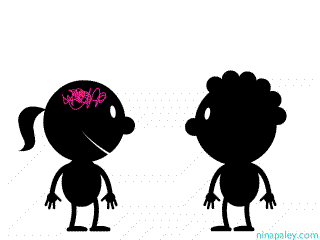
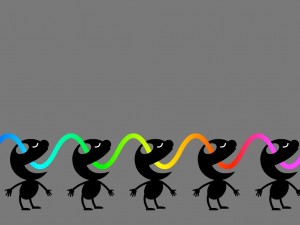
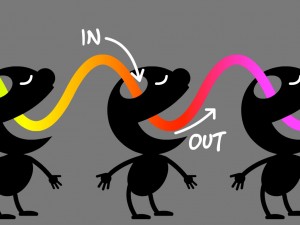
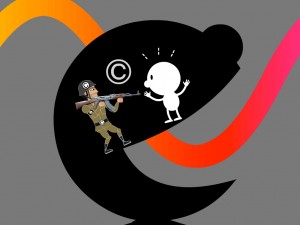
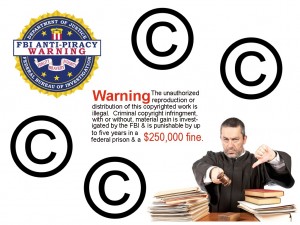
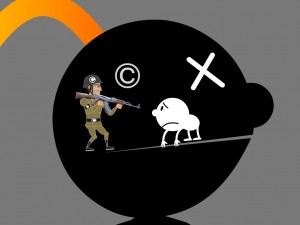
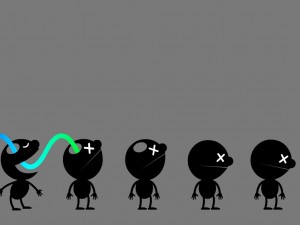
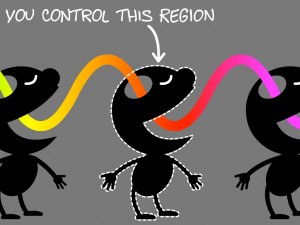
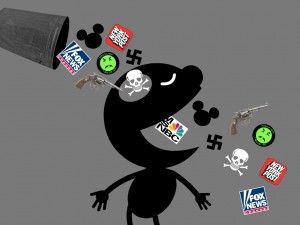
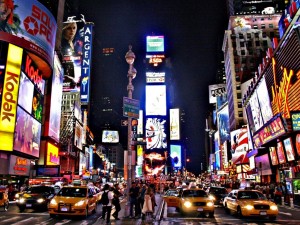
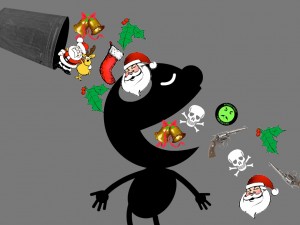
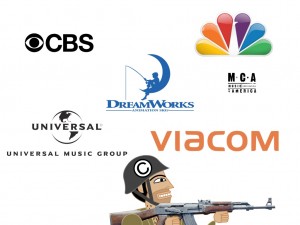
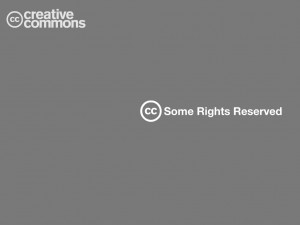
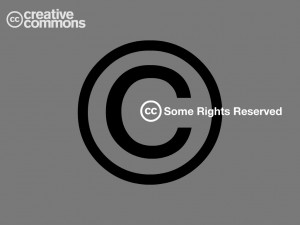
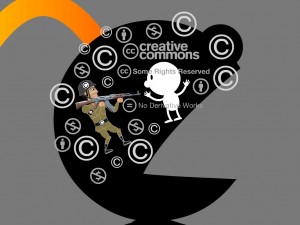
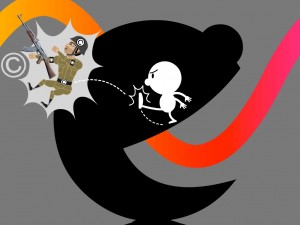
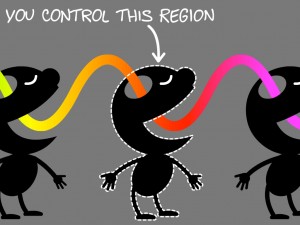
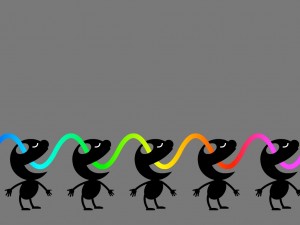
Re: “Copyright is automatic and there’s no way to opt out. ”
What about putting your work in the public domain? Isn’t that the way to opt out?
There is no way to “put your work in the public domain.” All you can do is add a license like CC-0, and that has problems of its own, as I wrote about here:
Hi Nina, your fight against these crazy copyright laws is admirable. When I talk to some of my friends they can’t even see the problem since they are so immersed in the culture of seeking permissions for using others’ work.
I wonder if we’ll ever see a dilution of the laws, let alone their abolition? (Sadly the current trend is in the opposite direction.)
as a humanist, i completely agree.
I even did a vid expounding the crazy of the google plus takeover, using my own lyrics written to the end theme song of Portal, Still Alive.
i call it,
ON THE SHELF.
enjoy, fellow copyright warriors.
https://www.youtube.com/watch?v=5liba6ABe9Q
This sounds like a great idea in theory, and I hate copyright as much as the next man. However, in practice, what should I do when Disney’s lawyers come after me for drawing my cartoon featuring Mickey Mouse, or whatever ? How do I keep myself out of jail ?
Wow, what an excellent presentation.
What many of the copyright maximalists forget is WE are society, it is OUR culture and their laws only have as much power as we allow them, not the other way around.
I will be sharing this with anyone who will listen.
Job well done 🙂
Sadly you’re right CC-0 is the best, I use it for all my Photoshop submissions on Brusheezy, PSG, Deviant, and so on. Even then it’s possible to remove your work from it as Techdirt recently pointed out.
Though myself I use CC-SA I don’t care if it was going to be sold, but I’d rather see it encourage more sharing.
Dear Nina,
Thank you!!!
I’m Fátima, I’m from Portugal. I work with a lot of artists and creative companies here.
I’ve just started a PhD to explore more this copyright issue and continue to help them the best I can and know (thus, I want to know more and better!). I’ve also volunteered for the Creative Commons Portugal project. Although I agree with you on the license complicated issue (even being a volunteer I don’t totally understand how it works), I guess it’s a start. And the people that I have been meeting there actually seem committed to “clean up the house”. As I said, it’s a start…
Views like yours are definitely very helpful!
Can I keep in touch? I’d love to get back to you later on, once I’m more clear about the way my research is taking.
And, again, thank you for such an inspiring post! Can’t wait for the video! 🙂
Cheers,
Fátima
Interesting.
I don’t think copyright is inherently evil. Before it existed, artists usually had to find patrons for their work, leading to sycophancy.
Charles Dickens lobbied for copyright, and it came into being, and suddenly it became possible to be a professional, independent author. To have a reliable income.
I’m sure it enable other creative people to receive payment for their work.
Regarding Daniel’s question, I thought wikipedia regularly spoke of putting things into the public domain. I was going to ask “are they wrong?” but a reading of one page suggests they partly disagree with but also partly agree with your interpretation Nina, in the “Wikipedia:Granting work into the public domain” page.
They start by saying it can be done but then suggest possible scopes it might not be doable, and then this short sentence: “some scholars of copyright law, including Lawrence Lessig, agree that it is difficult to put works in the public domain, but not impossible” summarizes the gray area nature here. Finally they say “it is not unreasonable to put your content in the public domain, but we advise you to also license it under a CC-BY license or a free-use license if you desire a “softer” fallback than the GNU FDL”
Paul – copyright does not really help artists. Other than Nina’s good writings, you can search for “Courtney Love Does the Math” on how artists get screwed over by the laws that are so often invoked as “protecting” artists.
Although never a VHEMT myself, I discovered your work years ago through that and agreeing with MUCH of what you stand for..I am child-free, and will stay that way, and my vegan diet is not processed vegan (a reasonable transition strategy for those who need it) but mostly hand prepared from whole foods. Congrats on SSTB and I’m delighted to see you’re also a critic of this aspect of Corporate Feudalism, so called IP/copyright life+70 and all that madness..
Bugmaster makes a good point about if we “ignore” copyright law and then lawyers attack us, but maybe you didn’t mean, or didn’t *only* mean “break” when you said ignore. Maybe let go of. That would be my suggestion. No offense to B. Spears but let’s use her music as an example, and more generally, as a symbol of the “content” that’s copyrighted.. even if we all broke the law and made illegal copies, we’d still be dependent on corporate produced music..they would get revenue by some other ways, embedded adverts, or other way to control us, and at the very least, minutes spent listening to corporate produced music are minutes not listening to non corporate music (or producing it..) How about we “ignore copyright law” not by downloading illegally but by making it obsolete? By having enough non-corporate music, art, and more (including libre software) so we don’t need it? That would be the best way to “ignore” copyright laws, it seems to me, and maybe Nina meant that, or in part meant that. This would help both in this case and, if extended, in more far-reaching ways.
The long-term vision, as I wrote about some dozen years ago, is a commons (and also, way of mutually interacting with others having different skills) with enough for any of us so support our basic needs for housing and food and software and music, etc, so we can survive, and be free, without being a wageslave or being in any other way dependent on the Corporate system. Mind you, no one would be “forbidden” from interacting with corporations if they want to..but a real “free choice” (what advocate of “the market” claim, usually falsely, that they favor) would finally exist for the first time in a long time: one could survive without depending on corporations (or living in a cave and eating berries) but with a real range of possibilities for meeting one’s needs, interacting with others, and contributing to society..
P.S. Paul, if you still think copyright helps artists and if you don’t trust Courtney Love, here’s one last example, I’m not sure if Nina allows urls or images, so I’ll hand type it in..it’s from an image from the “we are the 99 percent” tumblr, an older, seemingly male, black artist is holding up a Gold album over his face to cover his identity, and in front of him hand-written these words:
“I am the former Lead Singer of a 60s band. I performed before _thousands_ at AtlantaPop2, MiamiPop, NewportPop, AtlanticPop. I _did_NOT_ squander my money on drugs or a Fancy home. I went from 1967-1994 before I saw my _first_Royalty_check_. The Music giants I recorded with only paid me for 7 of my albums. I have _NEVER_ seen a penny in Royalties from my other _10_albums_ I recorded. Our hit song was licensed to over 100 films, TV, and commercials WITHOUT our permission. One major TV network used our song for a National commercial and my payment was 625 dollars. I am now 72, trying to live on 1200 a month. Sweet Rellf (relief? hard to read -ED), a music charity, is taking donations for me. Only the 1% of artist[s] can afford to sue. I am the 99%”
Stunnying. But can’t say I’m surprised. I can send the url for the image if you email me (econdemocracy atGmail) or you can find it by search engine on the “99 percent” tumblr. That’s the reality of copyright or other IP “helping artists” if you’re not a big shot (and as Love reminds us in her piece, even the bigshots can get the short stick too..)
Hi Nina,
Merry Christmas! Love your cartoon work and thoughtful comments on divers matters relating to animation and cartooning. Most especially, I really enjoy your style of illustration / drawing. I am not an animation person, per se, but am wading into the thickets trying to learn a few things — perhaps ultimately to write a pompous media analysis type book on certain aspects of the field.
At any rate, I used your Sita image in the latest post on my blog. Hope that is okay! Thanks.
El Awrence
The German Copyright vs. License “battle”
about so-called OPEN GOV (geo) DATA:
2010:
http://blog.zeit.de/open-data/2010/11/12/innenministerium-rohdaten-lohmann/
2011:
http://okfn.de/2011/11/pressemitteilung-urheberrecht-fuer-das-21-jahrhundert-schaffen/
2012:
http://www.ign-sn.de/GI2012/GI2012-OpenDataPolicies-PROCEEDINGS.pdf
2013: Zugängliche Plattformen und offene Lizenzen für unsere Daten!
http://not-your-govdata.de/
http://not-your-govdata.de/2013/10/07/evaluation-des-govdata-portals-online-befragung/
2014: #Zensurheberrecht
https://fragdenstaat.de/presse/2014-01-21-bmi-mahnt-fragdenstaat-ab/
[ GI2014 – http://GDI-SN.blogspot.com/ ]
X-border OPENDATA Movement (Sustainability & Interoperability of Open Geo Data & Open License Policy for Europe of Regions) ******************************************************************
[GI2014-FORUM] +++ 14. “Sächsisches GI/GIS/GDI-Forum” in DRESDEN +++
Contact: [ GI2014@IGN-SN.de ]
Dresden: 29./30. April 2014 (Call For Presentations t.b.a.)
Hi Nina,
thank you for the awesome talk. I’ve translated the annotation to Czech and displayed on https://www.pirati.cz/make_art_not_law You can see, that I’m even faster in linking the talk recording 😉
Best wishes in making Art 😉
Filip
@Nina
That sounds sad, but at least you can try to let people know that you are putting it under a CC-0 license so people can know they have permission or something.
Still though, there must be a legal area somewhere that really does allow your work to be put in Public Domain (Without the permissions thing) and as I heard you legally can somehow I think.
I agree with the idea that we are the material through which information flows; (In fact we, ourselves, are information.) There are many ways we are meant to be conduits: a lot of disease is the result of life force attempting to pass through us but meeting with resistance because we are not properly aligned or organized–we have developed obstructions.
The idea that we can increase our wealth or power through ownership rests on a fundamental misunderstanding of what power is and how it works. I came to understand this in the late 1980’s when I found in a recycle bin an old copy of Ms. Magazine. There was a story about the first women to become corporate VP’s. One of them said, “Power is not something you have or don’t have; it’s a shared commodity that ebbs and flows among us.”